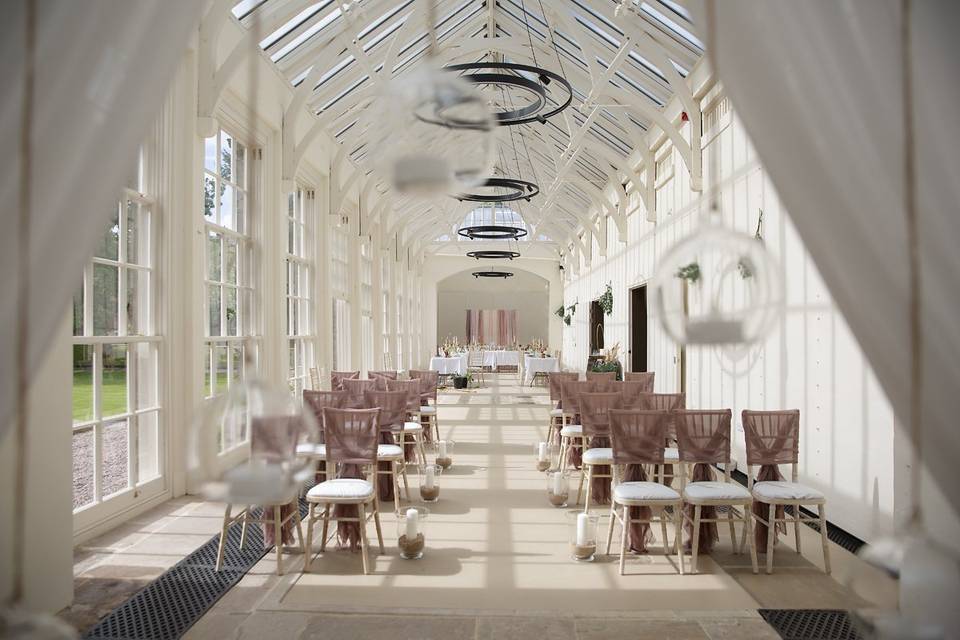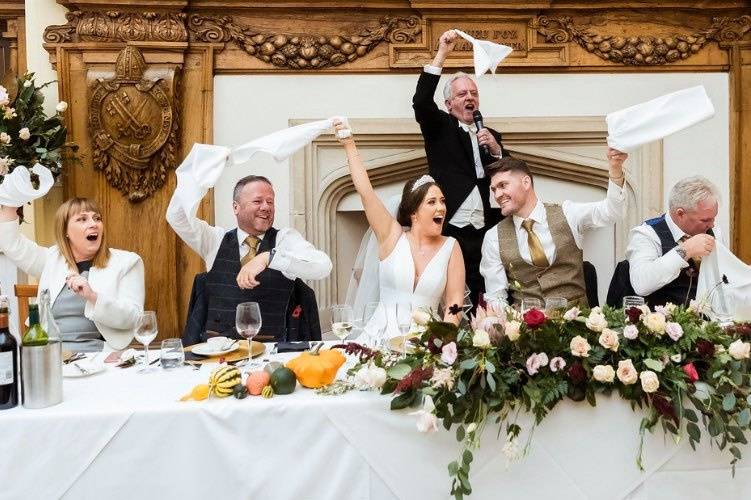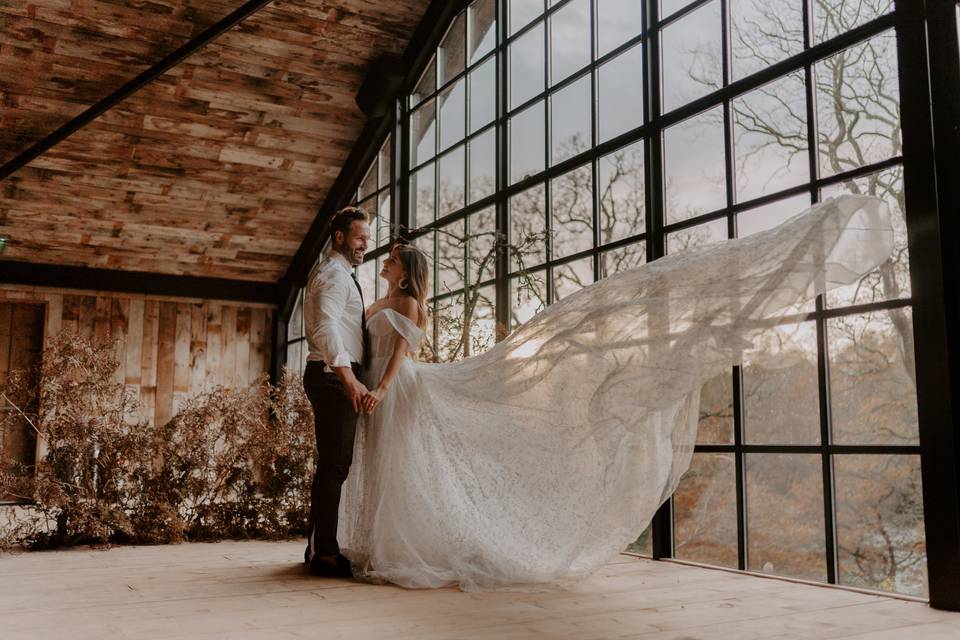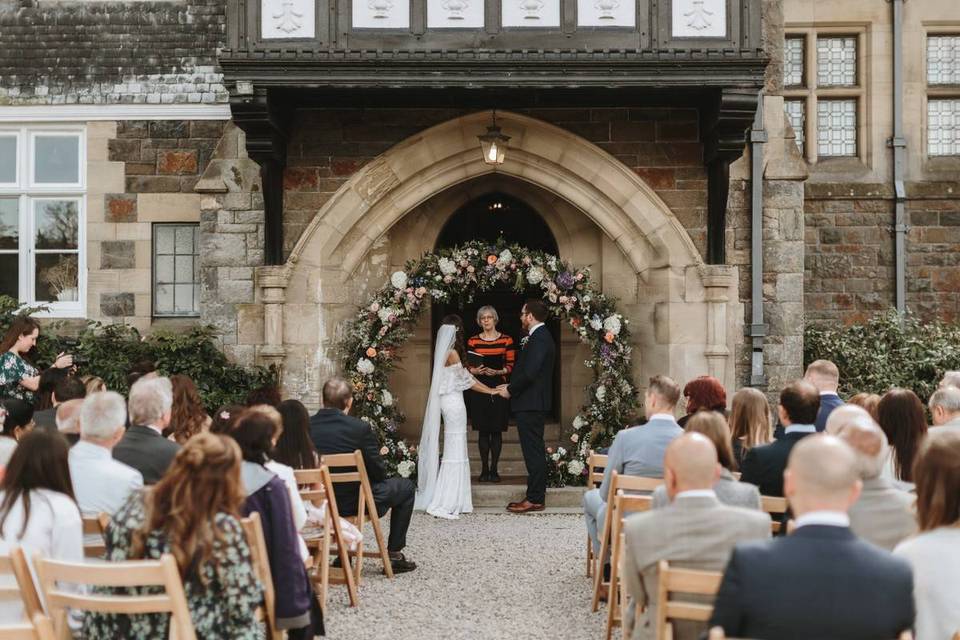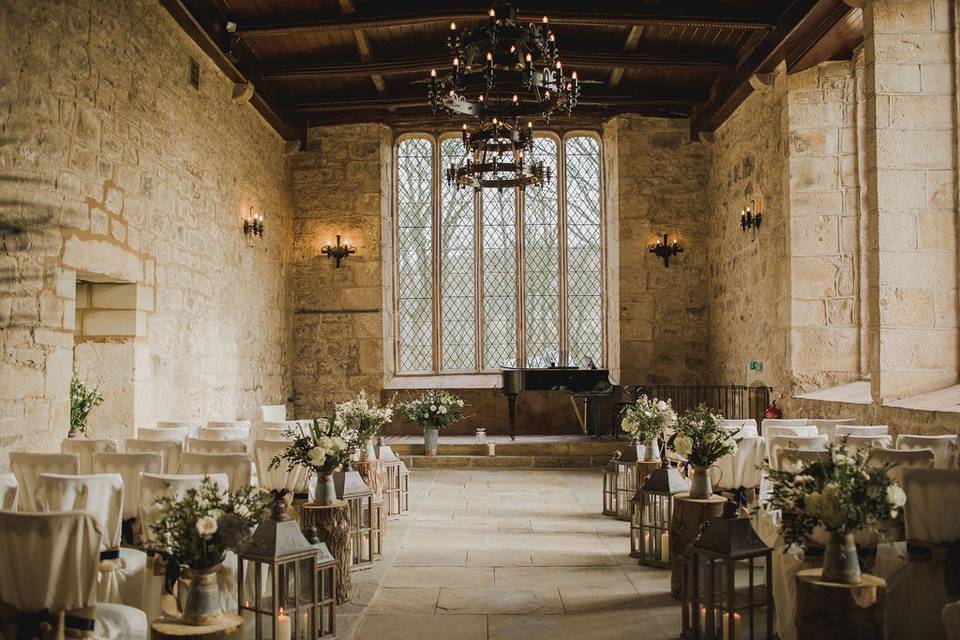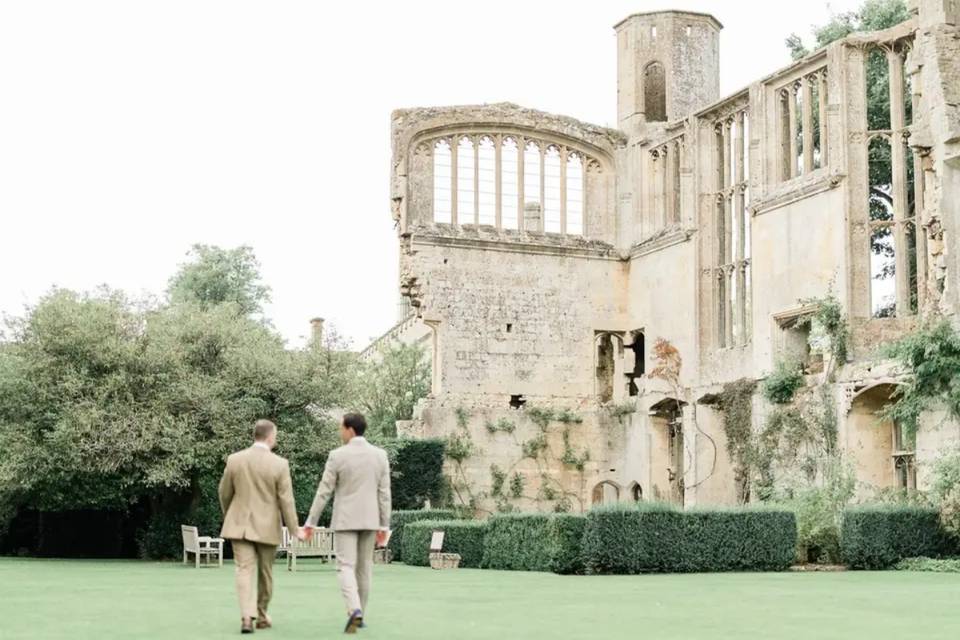Everything You Need to Know About Christian Wedding Vows
Are you having a Christian wedding? Here is everything you need to know about a Christian ceremony, including the wedding vows
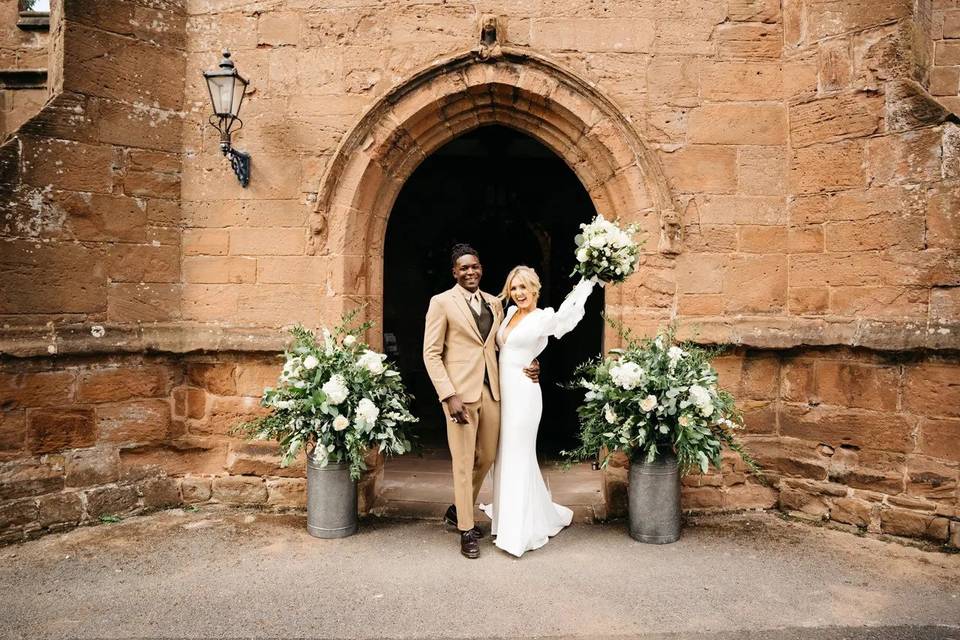
Your wedding vows are, without doubt, the heart of your ceremony and the most meaningful part of your wedding day. After all, the moment you make those promises to each other and become lifelong partners is the reason for this huge celebration in the first place.
That’s why we’ve put together this guide on how to feel inspired by your Christian wedding vows, whether you choose to stick with a traditional order or create a more bespoke ceremony.
About Christian Wedding Vows
Did you know that the Christian wedding vows aren't in the Bible, but are based on biblical principles? If you’ve been to church weddings before, you’ll likely have heard the traditional Church of England wedding vows many times. Christian vows have a traditional order and wording that is legally binding, and you’re unlikely to be able to make sweeping changes to these, but there are other aspects of the ceremony that can be personalised.
Hymns and readings, for example, will shape your ceremony and what you choose can make a service a great event, not to mention more meaningful to you as a couple.
“The vows in use in the Church of England today follow the same pattern and use some of the very same phrases from medieval precedents. Part of the beauty and significance of these marriage vows is their constancy over many hundreds of years,” reveals Rev Dr Tom Woolford, theology advisor to the Church of England.
“There is a traditional language (“thee” and “thou”) and modern language version to choose from, but the Church of England does not allow any further personalisation. In the eyes of the Church, every wedding over which it presides participates in the same essential gift and calling of God – whether or not the couple are old and young, already have children or don’t, whether they are Christians and churchgoers or neither.
“Use of the very same vows in each ceremony is one way the Church expresses that belief. However, there are lots of other aspects of the wedding ceremony that can be tailored to ensure your special day is personal, meaningful, spiritual, and beautiful,” he adds.
“Perhaps including an additional reading that, while not formally part of the vows, could be used to express your love and commitment in your own words. Your vicar would be able to advise you on the options and would be delighted to work with you to design a wonderful service.”
What are the Christian Wedding Vows?
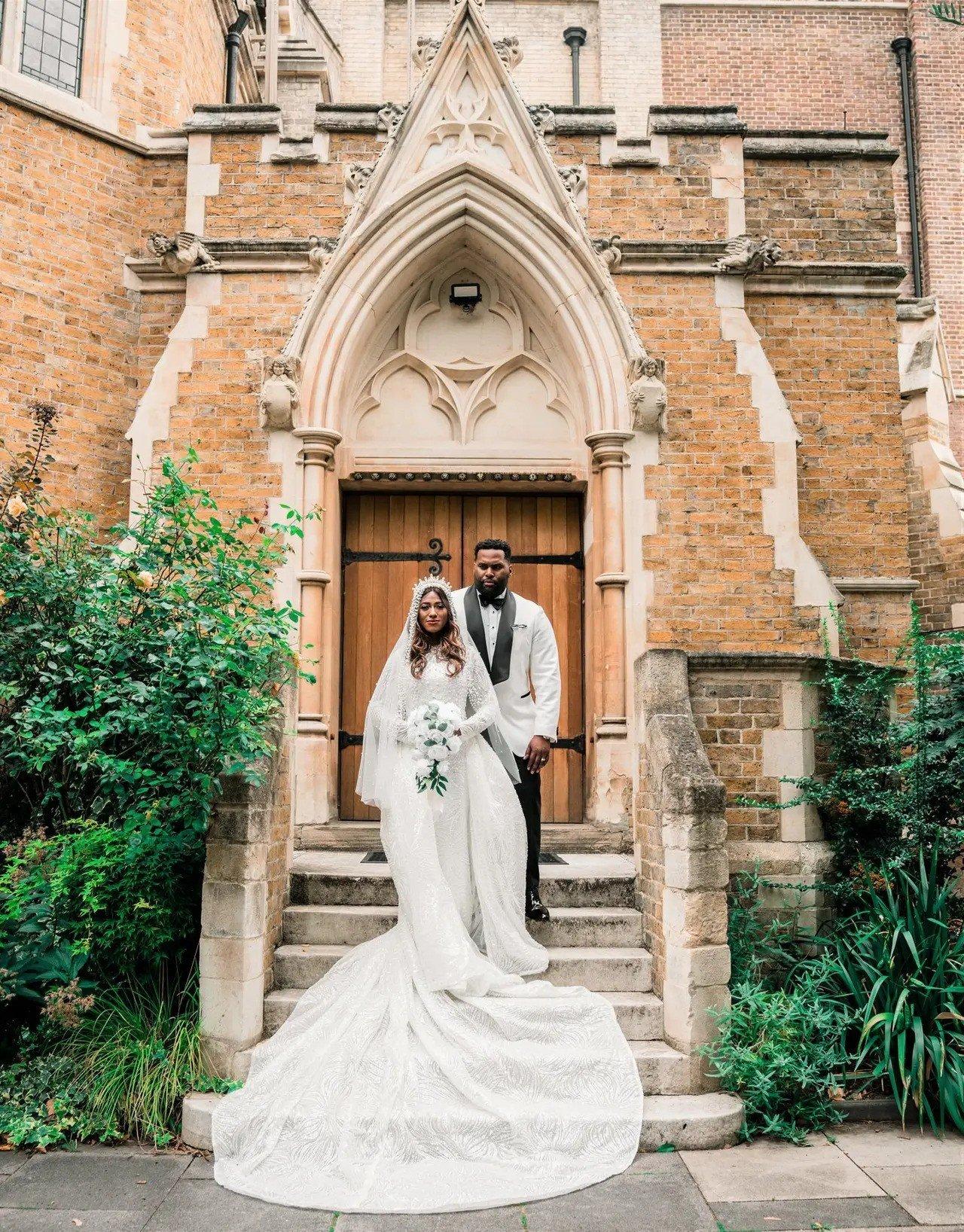
The main Church of England Christian marriage vows are as follows. These time-honoured vows are as relevant now as they were 500 years ago, and are an eloquent and traditional way to express your faith and commitment to one another while following in the footsteps of those who came before you.
I, (Name), take you, (Name),
to be my wife/husband,
to have and to hold from this day forward;
for better, for worse,
for richer, for poorer,
in sickness and in health,
to love and to cherish,
till death us do part,
according to God's holy law.
In the presence of God, I make this vow.
Prior to your vows, you’ll also be asked to make ‘Declarations’ (That’s the “I do solemnly declare that I know not of any lawful impediment why I…” bit – remember that?). This is also legally binding and cannot be changed.
Why Are the Vows Important in a Christian Wedding?
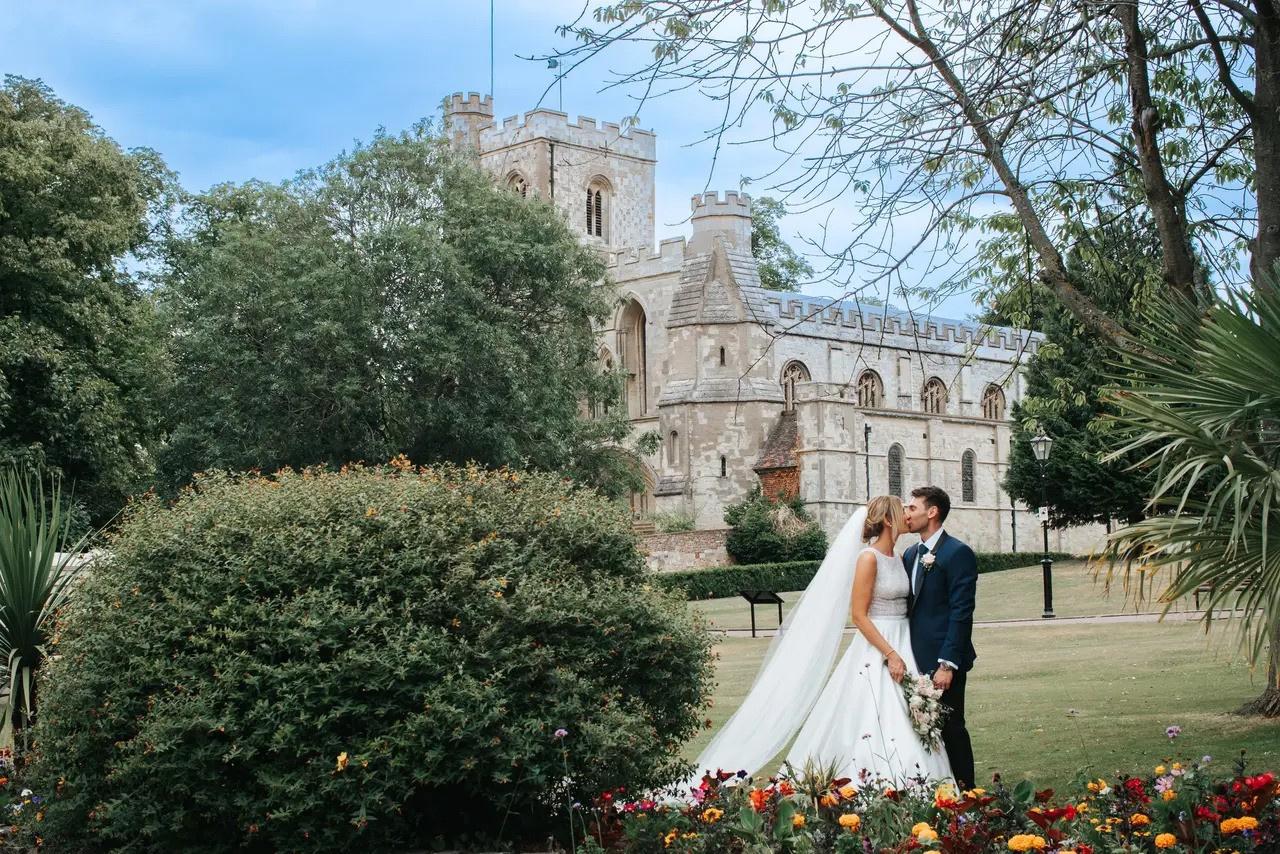
“Christians understand marriage to be centred on a promise of lifelong faithfulness – ‘forsaking all others’ and through the ups and downs of life (‘for better, for worse, for richer, for poorer, in sickness and in health’),” says Rev Dr Tom Woolford.
“The vows are the formal, public making of those promises in the sight of God and in the presence of witnesses, supported by family and friends. The vows are mutual, legally binding promises made intimately and exclusively between the couple – the vicar is just there to help them say the right words!" he adds.
Are Christian Wedding Vows Different in the UK?
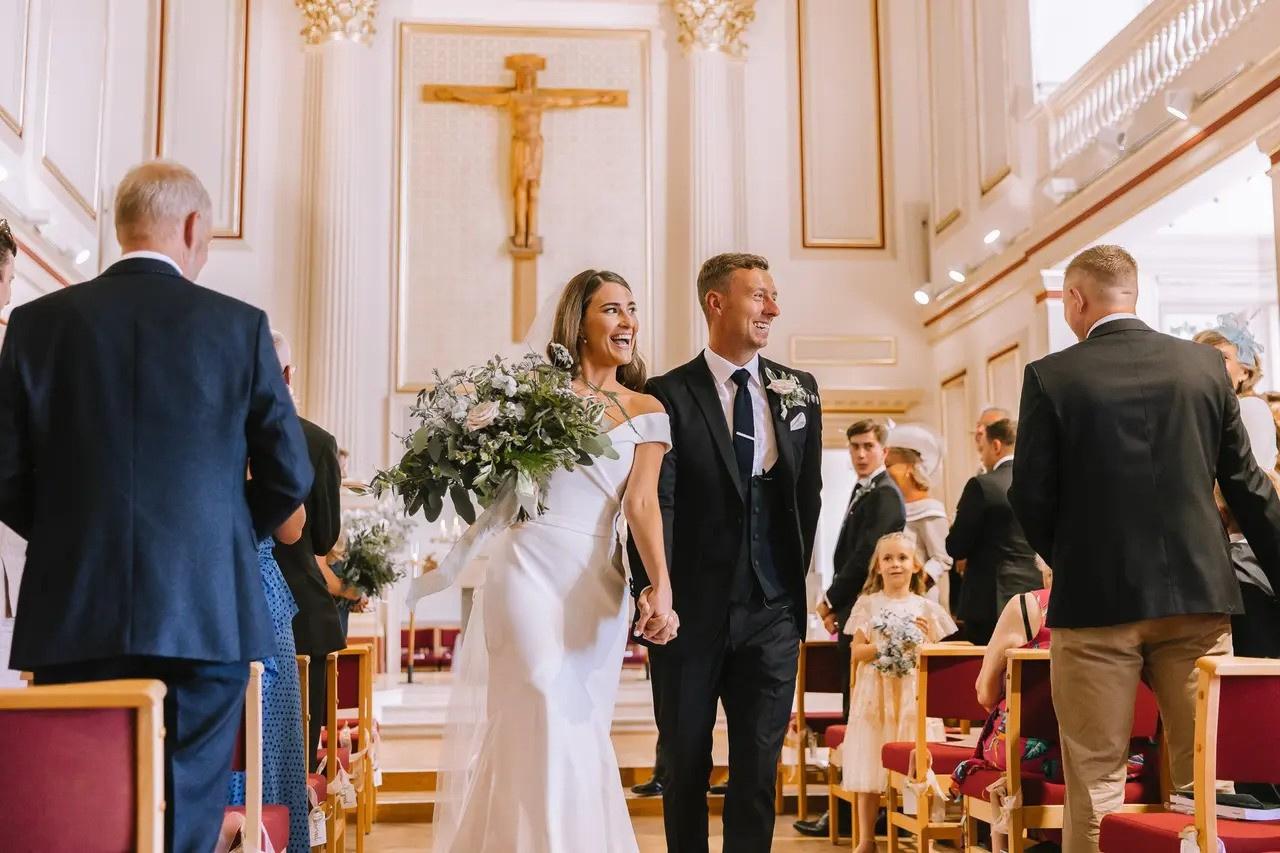
While there is a common core in terms of content and structure, there is a lot of variation between the marriage vows in different Christian denominations within the UK, let alone across different countries and languages worldwide.
“In the English-speaking world, probably all other variations have been influenced to some degree by the traditional vows in the Church of England’s historic liturgy,” explains Rev Dr Tom Woolford. “If you marry in a Church of England Church in continental Europe (the Diocese in Europe) you could use either the Church of England’s English vows, or the authorised translations of the vows in the language of the country in which that church is located.”
How To Write Christian Wedding Vows
The vows above are the official vows for Church of England weddings – and are legally binding – so cannot be changed or modified. What you can do, however, is include additional readings, poetry, or Bible extracts as part of the ceremony – be sure to talk to your vicar or member of the clergy to discuss what can be added, as some churches are stricter than others.
Whatever you decide, remember that your wedding vows communicate a message to your future partner and express your commitment, so speak from your heart.
Still thinking about vows? We've got a guide to writing your own vows here.

